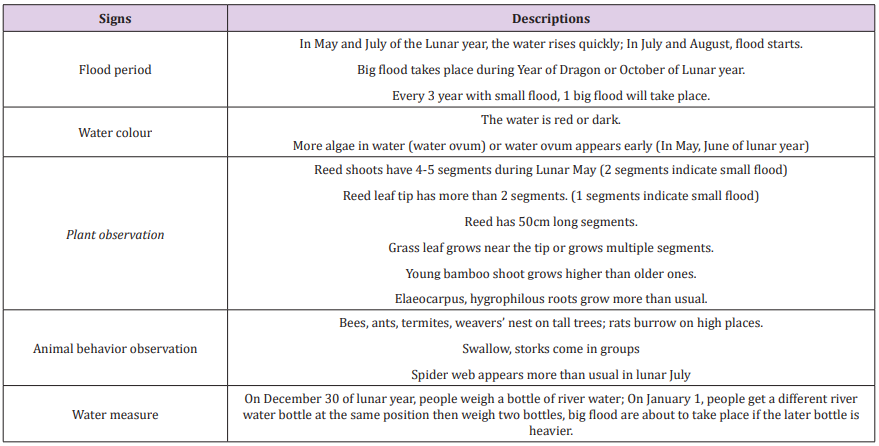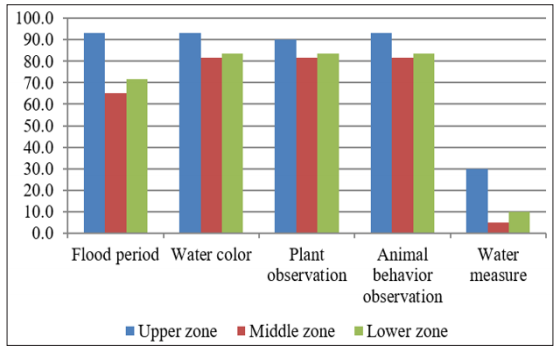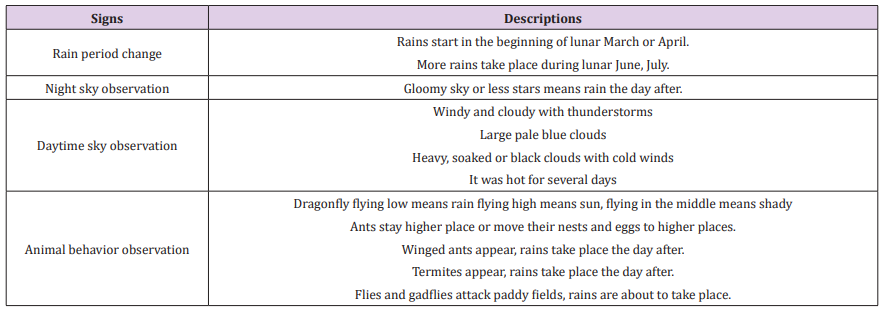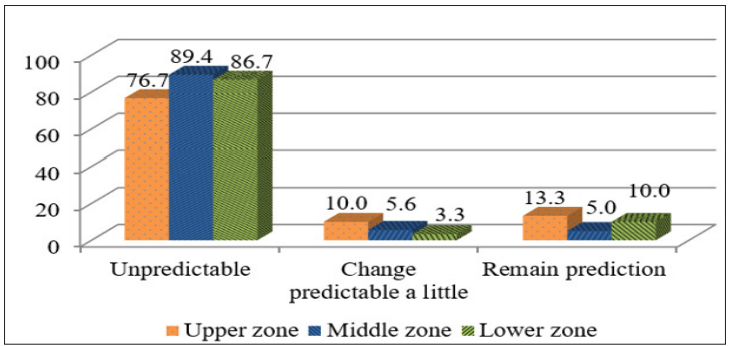Use of Indigenous Knowledge to Adapt with Climate Change: A Case Study in a Giang Province, in the Mekong Delta, Vietnam
Introduction
The livelihood of rural people in the Mekong delta replies mainly on the local ecological system [1,2]. In recent years, the temperatures in inland Vietnam are rising and the weather become extreme and unpredictable [3]. In A Giang province, climate change has caused serious damages for the livelihood of local people such as flood, drought and forest fire [4]. In this case, indigenous knowledge, the knowledge gained over time through experience has been used to adapt with these changed [5]. This study, therefore, aimed to get a deep for using of indigenous knowledge to adapt with climate change about how flood has affected the local people and the roles of indigenous knowledge in terms of building solutions to adapt with flood effects.
a) Systematize and evaluate the suitability of indigenous knowledge and the ability of farmers to adapt to floods in different conditions.
b) Propose conservative measures and promote the value of using indigenous knowledge of farmers in A Giang province.
The information was collected by using a combination of quantitative and qualitative research methods. In particular, qualitative research methods including carrying out the evaluation with the participation of people and using the following tools such as Timeline; Seasonal Calendar; Venn Diagram; Problem Ranking Matrix; and detailed interviews of local leaders. Quantitative research methods are included interview local experienced households living with floods (around 180 households) in the upstream (Phu Huu commune), middle-stream (Vinh an commune) and downstream (Vinh Phuoc commune).
Indigenous Knowledge of the Local People in Flood Forecasting
Household interview results (2016) showed that people used natural characteristics to predict flood. These experiences mainly passed on from generation to generation (Table 1). In addition, upstream communes seem to have more flood forecasting experience than midstream and downstream ones because floods occur earlier with higher vulnerability (Figure 1).
 Figure 1: The difference in people’s flood forecasting in flood areas.
Figure 1: The difference in people’s flood forecasting in flood areas. Indigenous Knowledge of the Local People in Weather Forecasting
Indigenous Knowledge of the Local People in Weather ForecastingHousehold interview results (2016) showed that upstream communes seem to have more weather forecasting experience than midstream and downstream ones (Table 2).
Currently, due to unusual and complex weather, unpredictable nature so the accuracy of flood and weather prediction is no longer as high as before, in addition to the impact of science and technology, the number of people with indigenous knowledge is not many. Specifically, 89.4,% of the interviewees said that the current flood situation is not predictable; 10.0% said that they change their predictions a little and only 13.3% said that the weather situation remains in their predictions (Figure 2).
 Figure 2: Assessing the accuracy of the predicted flood and weather local people.
Figure 2: Assessing the accuracy of the predicted flood and weather local people. Conclusion
ConclusionIndigenous knowledge plays an important role in adapting to changes in the environment. As a national resource, it also contributes to the sustainable development of the local community in inexpensive ways, including the participation of people and achieving sustainable development. Much indigenous knowledge is valuable in predicting and adapting to floods. However, this knowledge has not been specifically recorded and stored appropriately for transmission to the latter and widely shared in the community. Indigenous knowledge of local people is based on the specific characteristics of the organisms and changes in environmental conditions such as warning signals for local people to forecast floods and weather to prepare for appropriate change in production and life. In addition, there is some indigenous knowledge that is no longer relevant, and misleading compared to the present. It should be considered in the current context due to human impacts and climate change. Therefore, the possibility of flood forecast of the people also decreased, only a small number of people can predict the flood, the weather. It is necessary to increase knowledge and encourage people to combine indigenous knowledge and scientific knowledge to minimize the damage caused by floods.
More BJSTR Articles : https://biomedres01.blogspot.com



No comments:
Post a Comment
Note: Only a member of this blog may post a comment.